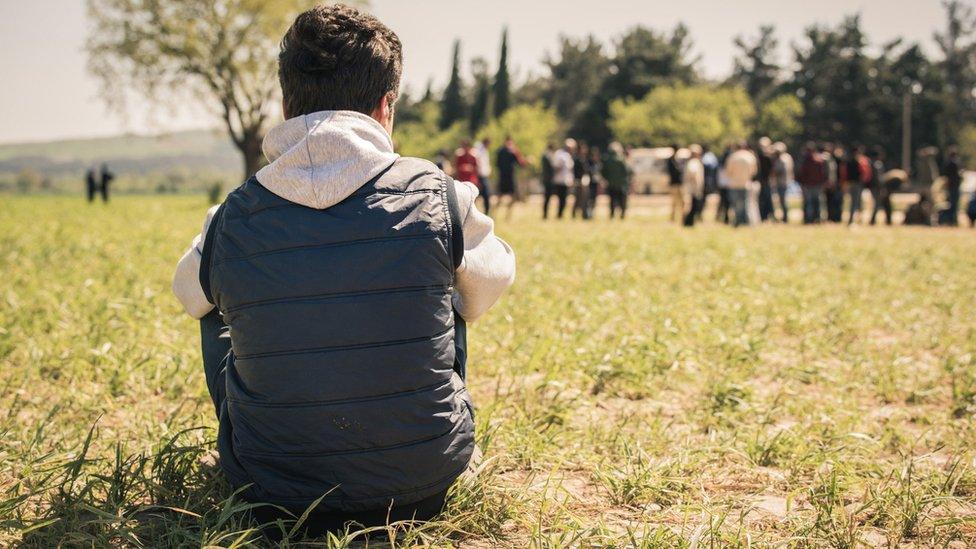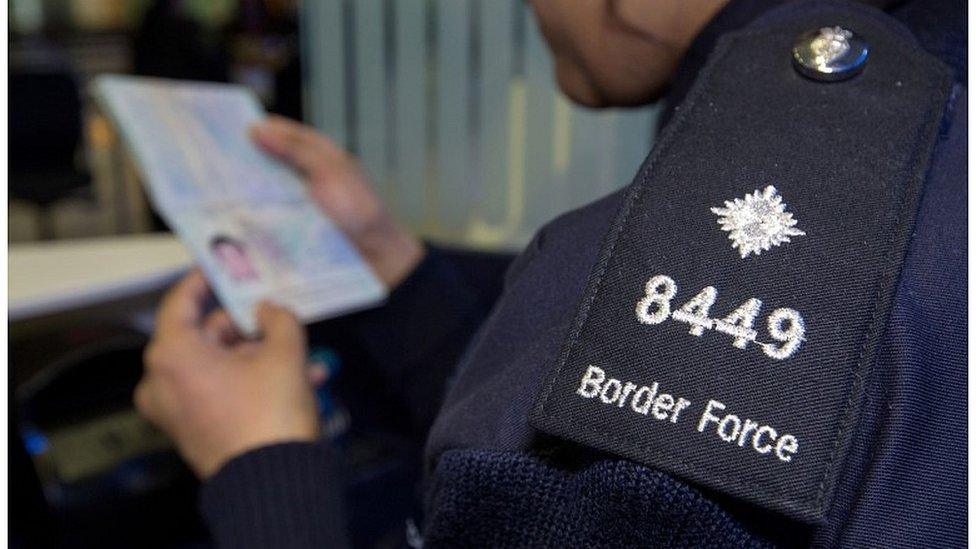MPs back bill to reunite child refugees with relatives
- Published

Changes to asylum rules that would reunite hundreds of child refugees with their families are a step closer after MPs gave their backing to the plans.
Proposed legislation which would enable people who arrived in Britain as a child to sponsor applications for close relatives to settle with them passed its first Commons hurdle on Friday.
Ministers say it could encourage people to attempt the risky journey to the UK.
But the SNP's Angus MacNeil said it was simply was the "right thing" to do.
The government has not given its backing to Mr MacNeil's private member's bill but it passed its second reading after Labour, Lib Dem and some Tory MPs spoke in favour of it, as well as the SNP.
Speaking after MPs backed the principle of the bill by 129 votes to 42, Mr MacNeil said it was a simple fact that bringing families together helped them flourish and benefited society as a whole.
"It's clear that this issue isn't about party politics, it's about doing the right thing," he said.
"It was pretty obvious to all of us that families belong together and that children belong with their parents. I hope that ministers come to the same compassionate conclusion."
'Story to tell'
The bill would also reinstate the right to civil legal aid for refugees and extend the age at which parents can sponsor their children to join them in the UK from 18 to 25.
Labour said the proposals would "address anomalies" in the refugee system and while it would benefit a relatively small number of people, it would have a "transformational" effect on their lives.
Speaking in Friday's debate, former Lib Dem leader Tim Farron said the changes would bring "immigration rules into line with real life" - and that "compassion and common sense should take the place of pedantry".
Offering her support, Conservative MP Anna Soubry said refugees were human beings "each with a story to tell" of being a victim of war, persecution or natural disaster.
By backing the "modest" measure, she said it would show the "type of Conservatives we are all proud to call ourselves".
But her colleague, Will Quince, said he was yet to be convinced that widening the eligibility resettlement criteria was the right thing to do, noting it would do nothing to address the reasons why families had been displaced or address the sources of conflict.
He said it was unhelpful for opponents of the bill to be portrayed as "cold-hearted" or lacking in empathy.
'Glimmer of hope'
Campaigners said Friday's vote offered a "glimmer of hope" to the families of refugees separated by conflict.
"At the moment, the government's restrictive rules leave refugees isolated, traumatised and alone in the UK, knowing that the people they love still face untold dangers in other countries," said Maurice Wren, chief executive of the Refugee Council.
The government's decision to close the Dubs resettlement scheme for child refugees from Syria and other war-torn countries was heavily criticised last year.
Campaigners say it should have been used to give sanctuary to 3,000 rather than hundreds of child refugees.
The government has said it is committed to resettling 20,000 refugees affected by the Syrian conflict and 3,000 vulnerable children and their family members from the Middle East and North Africa region by 2020.
It says more than 9,300 individuals have already been resettled under the Vulnerable Persons Resettlement Scheme, almost half of whom are children.
The Dubs scheme was named after campaigner and Labour peer Lord Dubs, who came to the UK as a child refugee before the outbreak of World War Two.
It required the UK government to provide assistance to a specified number of unaccompanied child refugees, who arrived in Europe with no family connections.
- Published21 February 2018
